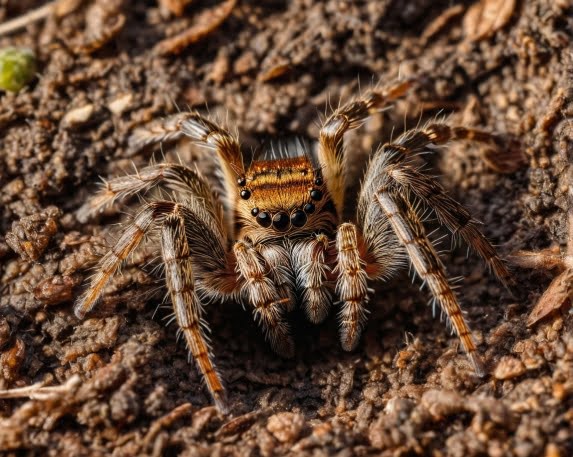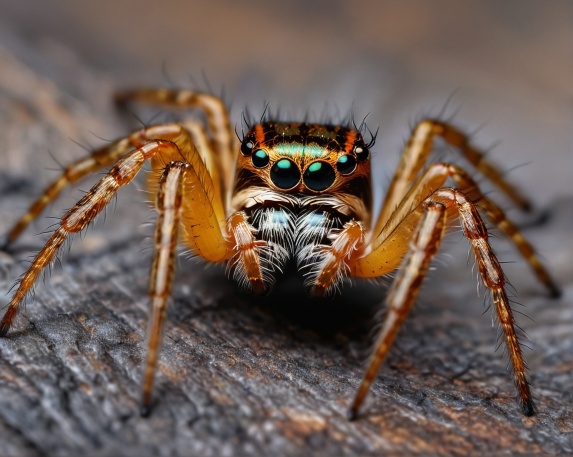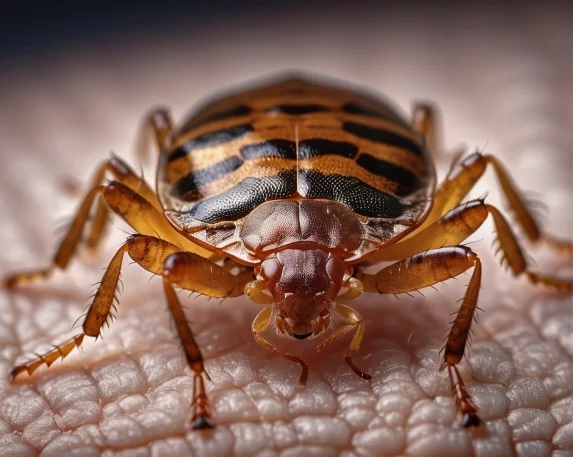Are There Dangerous Spiders in the UK?

Spiders in UK
Keep your home pest-free with Panther Pest Control:
- Expert pest control services for homes and businesses.
- Safe, effective, and environmentally-friendly treatments.
- Trusted professionals dedicated to eliminating pests for good.
Find pest controller near you
Are There Dangerous Spiders in the UK?



Spiders are often associated with fear and discomfort for many people, and the idea of venomous or dangerous species lurking in the UK might be concerning. Unlike more tropical countries, where deadly spiders are more common, the UK is not home to many species that pose a significant threat to humans. However, with over 650 species of spiders across the country, it’s natural to wonder: are there any dangerous spiders in the UK, and if so, should you be worried? In this blog post, we will explore the types of spiders found in the UK, which ones are potentially dangerous, and how to deal with them safely.
Common Types of Spiders in the UK
Most of the spiders you’ll encounter in the UK are completely harmless and more interested in catching insects than bothering humans. Spiders are actually beneficial creatures, playing a crucial role in controlling pest populations. Some common UK spiders include:
- House Spiders (Tegenaria domestica): These are often seen indoors, particularly during the autumn months when males are searching for a mate. While they can be large and intimidating, they are harmless to humans.
- Garden Spiders (Araneus diadematus): Known for their orb-shaped webs, these spiders are common in gardens and outdoor spaces. They are not dangerous and rarely bite.
- Daddy Long Legs Spiders (Pholcus phalangioides): Recognizable by their long, thin legs, these spiders are often found in corners of ceilings. They are harmless and often mistaken for more dangerous species.
However, among the many harmless spiders, there are a few that can cause concern due to their venomous bites.
Venomous Spiders in the UK
While most UK spiders pose no threat to humans, a handful of species can bite if provoked or threatened. It’s important to note that even these species are rarely dangerous, and their bites are usually not life-threatening. Here are some of the more notable species:
1. The False Widow Spider (Steatoda nobilis)
The most well-known potentially dangerous spider in the UK is the False Widow Spider. Native to Madeira and the Canary Islands, the False Widow was first recorded in the UK in the late 19th century and has since spread across much of the country. It gets its name because of its resemblance to the infamous Black Widow Spider, though its bite is far less severe.
- Appearance: The False Widow has a bulbous body, dark brown or black with a pale, almost skull-shaped marking on its abdomen.
- Bite Symptoms: While False Widow bites are rare, they can occur, especially if the spider feels threatened. The bite is often compared to a bee sting—causing pain, redness, and swelling. Some people may experience more severe reactions, including nausea, dizziness, or a high temperature, but these cases are uncommon.
- Danger Level: Though unpleasant, the bite of a False Widow is not deadly. The UK has no recorded fatalities from this spider, and most people recover quickly with minimal treatment.



2. Tube Web Spider (Segestria florentina)
Another spider known for its strong bite is the Tube Web Spider. Originally from southern Europe, this species is now common in parts of southern England, particularly near coastal areas.
- Appearance: Tube Web Spiders are medium-sized, with a dark brown or black body and iridescent green fangs.
- Bite Symptoms: The bite from a Tube Web Spider can be painful and is often described as sharp and intense, similar to a wasp sting. It may result in localized swelling and redness.
- Danger Level: While the bite can be painful, it’s not considered dangerous to humans. Symptoms typically subside within a few hours.
3. Woodlouse Spider (Dysdera crocata)
The Woodlouse Spider is a lesser-known species, recognizable by its reddish-brown body and large, powerful jaws, which it uses to prey on woodlice.
- Appearance: These spiders are distinctive due to their red-brown bodies and pale abdomens, along with their large jaws.
- Bite Symptoms: A bite from a Woodlouse Spider can be painful due to its strong jaws, but it is not dangerous. Symptoms include localized pain and minor swelling.
- Danger Level: Although the bite can cause discomfort, it poses no serious health risk.
Are Spider Bites in the UK Dangerous?
While some spiders in the UK are venomous and can bite, it’s important to emphasize that spider bites are extremely rare, and most spiders prefer to avoid humans. Even in cases where a bite occurs, it’s usually mild, with symptoms such as swelling, itching, or redness. Only a small number of cases result in more significant reactions, and these are typically allergic in nature rather than due to the venom itself.
How to Avoid Spider Bites
Most spiders will only bite if they feel threatened, so the best way to avoid being bitten is to leave them alone. Here are a few tips to minimize your chances of encountering or being bitten by spiders in your home:
- Seal Entry Points: Make sure doors, windows, and other potential entry points are properly sealed to prevent spiders from getting into your home.
- Keep Your Home Clean: Regularly vacuum and dust to remove spider webs and discourage them from settling indoors.
- Remove Clutter: Spiders love dark, quiet places, so reducing clutter in basements, attics, and other storage areas will help deter them.
- Use Natural Repellents: Essential oils like peppermint, tea tree, or citrus are known to repel spiders. Spraying diluted essential oils around windows and doors can help keep them away.
What to Do if You’re Bitten by a Spider
In the unlikely event that you are bitten by a spider, the first thing to do is stay calm. Most spider bites in the UK are harmless and do not require medical attention. However, follow these basic steps to treat a spider bite:
- Clean the Bite: Wash the area with soap and water to prevent infection.
- Apply a Cold Compress: Use a cold cloth or ice pack to reduce swelling and numb the pain.
- Use Pain Relief: Over-the-counter painkillers, such as ibuprofen or paracetamol, can help manage any discomfort.
- Monitor for Reactions: In rare cases, people may experience an allergic reaction. If you develop symptoms such as difficulty breathing, dizziness, or a widespread rash, seek medical attention immediately.
Conclusion: Should You Be Worried About Spiders in the UK?
The simple answer is: No, there is no need to be overly concerned about spiders in the UK. While some species, like the False Widow, have gained a reputation for being dangerous, their bites are extremely rare and rarely cause significant harm. In fact, spiders are beneficial to have around, as they help keep the insect population under control.
If you are concerned about spiders in your home, professional pest control services like Panther Pest Control in London can offer expert advice and treatments to keep your home spider-free. Whether you need help identifying a potential pest or want to take preventive measures, our team is here to assist you. Remember, most spiders are harmless and pose little risk to humans, so there’s no need to fear these eight-legged helpers!
















